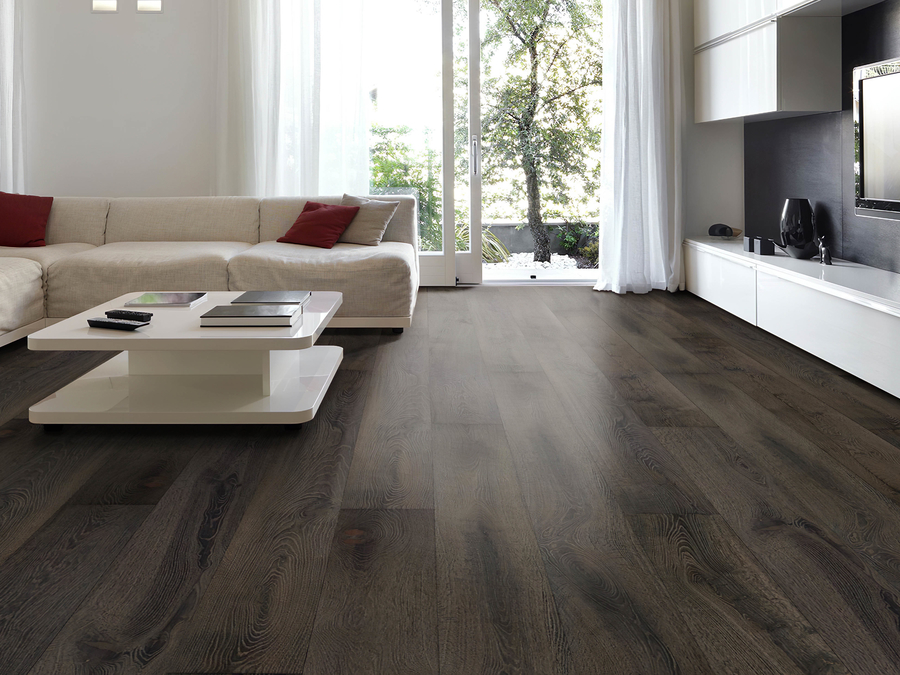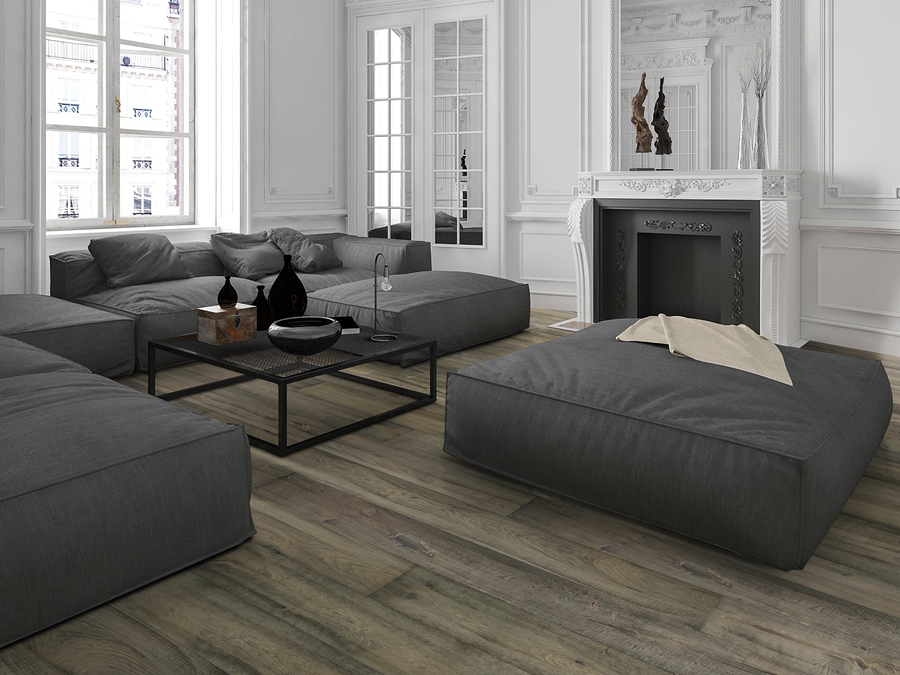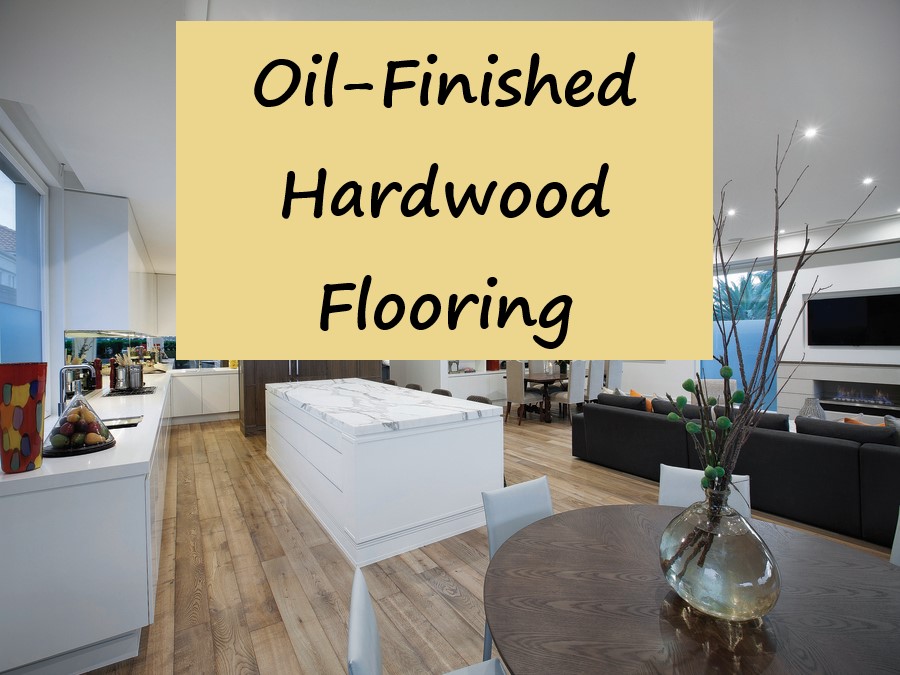
DuChateau Oil Finished Hardwood Floors
Oil Finished Hardwood Flooring: Pros and Cons
Trying to decide what finish to give your beautiful new solid hardwood floors? Maybe the traditional polyurethane isn’t exactly what you are looking for? Perhaps aluminum oxide just doesn’t fit the bill? Well, look no further, here at Georgia Carpet Industries we have the perfect fit for you. Oil-finished hardwood is what you are wanting! Its natural aesthetics, composition, and low sheen have caused a rise in popularity. The more rustic, European style wood flooring movement is taking hold in decor today. With our extensive knowledge in the flooring industry, we are here to help you through the pros and cons of oil-finishes. We are the source for all your maintenance tips and info on how oil-finishes can work for you. There are two general types of penetrating oil sealers: natural oil, and hard wax oil finish. Both of these will soak into the wood, making the wood surface itself tougher.

DuChateau Atelier Burnt Oak
First off, let’s begin with a few cons when it comes to these finishes. The main concern customers have has to do with upkeep. Very specific care instructions apply based on the brand and type. Regardless of that, every couple of years your hardwood will need to be refinished. This is usually common but there are other finishes that only need it every 5-7 years. When it comes to refinishing them, it takes longer to dry and set, meaning you might need to vacate your home for a couple of days while it is being redone. If you are looking to DIY your hardwood, oil-finishes also take much longer to apply and are definitely labor-intensive. In some situations, it might be easier to have them professionally done. Constant attention to your planks is required if you want to keep them looking new and staying protected. Part of that is also due to the fact that any damage/scratches that occur are directly on the wood instead of say a replaceable surface layer. Because of this, they also do not offer much resistance in the way of solvent damage (urine, alcohol, cleaners, etc.). Overall oil-finishes are a bit more sensitive in comparison to others. Many require special cleaners or maintenance oils like Du Chateau. A damp mop will handle spills and messes but you have to be careful about cleaners that have harsh solvents (ammonia, alcohol, etc.), these will dry out your floor and cause serious damage. Generally, these finishes can be taken care of with a simple sweep or vacuum. Another downside is the cost. Oil Finished hardwood floors tend to cost about 15-20% higher than aluminum oxide flooring.
Despite these minor downsides, many people prefer oil-finishes because of how they highlight each plank’s grain, depth, and beauty without adding an artificial high shine/gloss. This is one of the best finish choices for those looking to restore historic homes and keep the original character of the hardwood. Rather than resting on top of the wood and forming a protective barrier, as aluminum oxides and urethanes do, oil finishes soak into the floor and bond at a molecular level. This makes the wood itself stronger but leaves its texture and color unharmed. As time progresses, the finish will age with the wood, so it never gets the dull, outworn look that can occur with surface finishes. By soaking into the hardwood’s pores, the oil-finish helps prevent scratches and other damage. Easier spot/surface repairs can be made, unlike an aluminum oxide or polyurethane hardwood floor where you have to sand and completely refinish a larger area to get a seamless look.

DuChateau Atelier Tidal Rush
As you have read, oil finishes offer lasting protection and unparalleled elegance. They simply require regular cleaning and maintenance to look and perform their best. Using the right products and the right techniques will ensure that the beauty of your hardwood lasts a lifetime. For all of your flooring needs and questions, don’t hesitate to contact us in-store or online at georgiacarpet.com. We are one of the biggest wood floor stores in the area!



